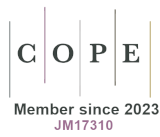Foreign language problmens as a means of building a sense of humour based on the example of German jokes about Turks
DOI:
https://doi.org/10.18778/1427-9665.12.07Keywords:
humour research, German joke about the Turks, incorrect forms as means of building a sense of humourAbstract
This article attempts to show which incorrect forms used because of foreign language problems are considered to be means of building a sense of humour in German jokes about Turks. Analyses include selected sketches from the Comedy-show “Was guckst du?!” and jokes about Turks from websites.
References
Attardo S., Raskin V. (1991), Script theory revis(it)ed: Joke similarity and joke representation model, In: Humor – International Journal of Humor Research, Volume 4, Issue 3–4, S. 293–349.
Google Scholar
Attardo S. (1994), Linguistic Theories of Humour, Berlin–New York.
Google Scholar
Attardo S. (1997), The semantic foundations of cognitive theories of humor in: Humor – International Journal of Humor Research, Volume 4, Issue 10, S. 395–420.
Google Scholar
Attardo S. (2014), Encyclopedia of Humor Studies, Thousand Oaks CA.
Google Scholar
Driessen H. (1999), Lachen und Feldforschung: Betrachtungen aus dem Blickwinkel der Ethnologie, In: J. Bremmer, H. Roodenburg (Hrsg.), Kulturgeschichte des Humors, Darmstadt, S. 167–185.
Google Scholar
Kaya Yanar erzählt: „Liebeserklärung an die Nation“, (2004), von www.kino.de. (= http://www.kino.de/news/liebeserklaerung-an-die-nation/165950, Zugriff 2005).
Google Scholar
Raskin V. (1985), Semantic Mechanism of Humour, Dordrecht.
Google Scholar
Raskin V. (2008) (Hrsg.), The Primer of Humor Research, Berlin.
Google Scholar
Schröder S. (2001), Interview mit Kaya Yanar „Was willst du?!“, In: Subway Magazin, April 2001.
Google Scholar
Sikorska K. (2009a), Zur Sprache der deutschen Comedyshow, In: W. Sadziński (Hrsg.), Acta Universitatis Lodziensis. Folia Germanica 5, Łódź, S. 29–37.
Google Scholar
Sikorska K. (2009b), Język niemieckiego programu komediowego „Was guckst du?”, In: S. Dżereń-Głowacka, A. Kwiatkowska (Hrsg.), Humor. Teorie – praktyka – zastosowania. Zrozumieć humor, Piotrków Trybunalski, S. 161–167.
Google Scholar
Sikorska-Bujnowicz K. (2012b), Ethnowitz als Wiedererkennungszeichen der deutschen Comedy-Sendung „Was guckst du?“, In: W. Sadziński, M. Gołaszewski (Hrsg.), Wechselbeziehungen zwischen Sprache, Literatur und Kultur (= Acta Universitatis Lodziensis. Folia Germanica 8), Łódź, S. 17–24.
Google Scholar
Sikorska-Bujnowicz K. (2016), Zum deutschen Ethnowitz. Eine korpusgestützte Analyse, Łódź.
Google Scholar
„Was guckst du?“, (1995–2000), eigene Aufnahmensammlung der deutschen Fernsehsendung von SAT.1.
Google Scholar
Wittner J. (2008), Interview Kaya Yanar. Merde in Germany (=http://www.stern.de/kultur/tv/interview-kaya-yanar-merde-in-germany-3090962.html, Zugriff 2015).
Google Scholar
http://www.grocceni.com/witze/witz0859.html
Google Scholar
http://www.lachmeister.de/lustige-witze/italiener/index.html
Google Scholar
http://www.bfriends.brigitte.de/foren/pavillon/44669-kurze-witze-69.html
Google Scholar
http://www.witze.woxikon.de/witze-uni-und-schule/320
Google Scholar
http://www.witzdestages.net/witze/laender-witze/
Google Scholar
http://www.witze-ueber-witze.de/nationalitaetenwitze.html
Google Scholar
Downloads
Published
How to Cite
Issue
Section
License

This work is licensed under a Creative Commons Attribution-NonCommercial-NoDerivatives 4.0 International License.










